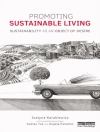Most comparativists have assumed that democratization is best understood by looking at regimes in the transition and consolidation phases of democracy without really considering the essence of democracy – liberal rights and democratic virtues. Democracy is seen as a mechanistic process without considering the ideas that build democratic regimes. This book begins afresh by proposing that comparativists need to consider democracy to be a combination of rights and virtues, and that t...
Most comparativists have assumed that democratization is best understood by looking at regimes in the transition and consolidation phases of democracy without really considering the essence of democracy – liberal rights and democratic virtues. Democracy is seen as a mechanistic process without considering the ideas that build democratic regimes. This book begins afresh by proposing that comparativists need to consider democracy to be a combination of rights and virtues, and that the difficulties of democratic transitions, consolidation, and maintenance are essentially problems relating to balancing rights and virtues in the regime. How do we reemphasize these aspects of democracy at a time when comparative literature focuses almost solely on democratic procedure? By combining the best elements of comparative theory and liberal democratic philosophy, Hood argues that comparativists can sharpen the scholarly tools we need to understand both the problems of democratization and maintaining democracy. He provides the reader with a valuable overview of comparative theory and how our abandonment of political philosophy has led to our acceptance of social science methods that can only lead to superficial analyses of democratizing regimes and established democracies.












